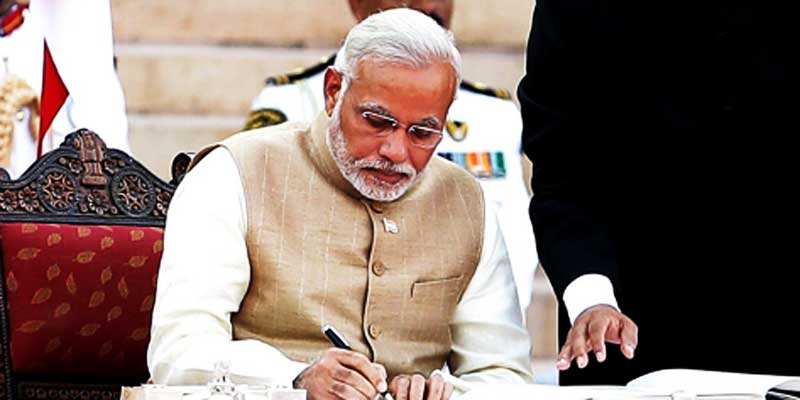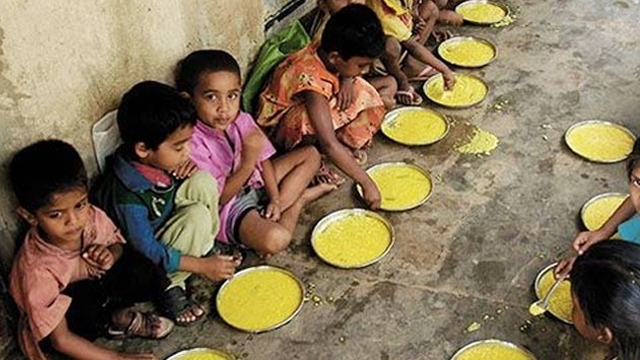The government that was elected on the promises of Achchhe Din has taken some good and tough decisions. But it was also marred in controversy over one or the other issue.
The newly elected government under Prime Minister Narendra Modi has completed 30 days in the office.
The government that was elected on the promises of Achchhe Din has taken some good and tough decisions. But it was also marred in controversy over one or the other issue.
It saw protests and some fruitful meetings.
Here is a look at the important decisions, and events that took place in these 30 days:
- Modi-Sharif meet: At the very onset of his assuming the office on May 27, Prime Minister Narendra Modi gave a hint of his diplomatic smartness when he spent considerable time with Pakistani PM Nawaz Sharif who had come to India to take part in his swearing in ceremony. Their relations have become so cordial that they are down to exchanging gifts for their mothers on a regular basis.
- SIT on black money: In its very first meeting on May 27, the cabinet constituted a special investigation team (SIT) to recover the black money stashed abroad.
- Row over Article 370: On the same day, MoS Jeetendra Singh courted a controversy when he said that the process of discussion had begun on the abrogation of Article 370. While the comment received mixed reaction by the people of the valley, the J&K CM Omar Abdullah tweeted that the state will not be a part of India if the same happens.
- 100 days agenda unveiled: On May 30, PM Modi asked his ministries to set a 100 days agenda after completion of which he will evaluate the working of the ministries.
- Shunning the UPA legacy: The PM, on June 1, abolished nine empowered groups of ministers (EGOMs) and 21 groups of ministers (GOMs) to ensure that his colleagues take faster decisions with more accountability.
- First tragedy: The government suffered its first tragedy within 9 days of its formation when union rural development minister Gopinath Munde died in a road accident on June 3.
- First day in Parliament: On June 4, Narendra Modi stepped into Parliament as the Prime Minister and told media: “I assure the people of this country that in this temple of democracy, every effort will be made to meet the hopes and aspirations of the common man of India.”
- The new Speaker of Lok Sabha: BJP leader from MP, Sumitra ‘Tai’ Mahajan was elected unopposed the Speaker of the 16th Lok Sabha on June 6.
- Faith in Bureaucracy: On June 7, PM Modi met bureaucrats and laid out his 11 point agenda to enable them to improve work culture in the central government.
- Joint session and change of tone: On June 9, joint session of parliament was addressed by the President Pranab Mukherjee where he echoed some of the sentiments in the BJP manifesto.
- Minimum Government, Maximum Governance: On June 10, the UPA legacy vanished when the PM dissolved four cabinet committees to implement his motto of ‘minimum government and maximum governance’.
- Maiden Speech: On June 11, PM Modi delivered his first maiden speech in parliament where he said: “We have got the people’s support, but if we do not get your (opposition’s) support it will be a waste. We want to take you along.”
- Football fever: PM Modi released a stamp on Football ahead of FIFA World Cup. India is going to host Under 17 world cup in 2017. The PM is also going to visit Brazil and see World Cup final.
- First foreign trip: PM Modi went to his first foreign trip on June 15 and his choice of country was Bhutan. The gesture sent a strong message to the neighbouring countries in the South Asia and also to the world.
- Appointments on hold: The PM held back appointments of secretaries to three cabinet ministers saying that none of the UPA officials from the ore ministries should be employed in the new government.
- Governors must go: Change in the government is generally followed by the change in governors. The new BJP government told all UPA installed governors to resign from their post on June 17. Some followed orders and some protested.
- First foreign crisis: The Iraq crisis gave shocks to India too with almost 10,000 of its nationals stranded in the war hit country. 46 nurses were stranded in Tikrit while 40 workers were abducted in Mosul.
- Hindi as official language: The government courted another controversy when it implemented a UPA circular of using Hindi as a language on the social media. Many, especially the south Indian leaders, saw it as an attack on their state language.
- Tough decision: The government took its forst tough decision when it hiked the passenger and freight fares of railways by 14.2 percent and 6.5 percent, respectively.
- Good results: Reports emerge on June 22 that the Swiss government has prepared a list Indians who have stashed un-taxed cash in their banks.
- Cheeni kum: The government decides to increase the import duty on sugar from 15 per cent to 40 per cent on June 23.
- Roll back: On June 24, the government comes under pressure from its own MPs to reduce the hike in the suburban rail fare in Mumbai.
The government is expected to present Union Budget on July 10 and Rail Budget on July 8. It will be clear then whether the achchhe din will continue or not.





